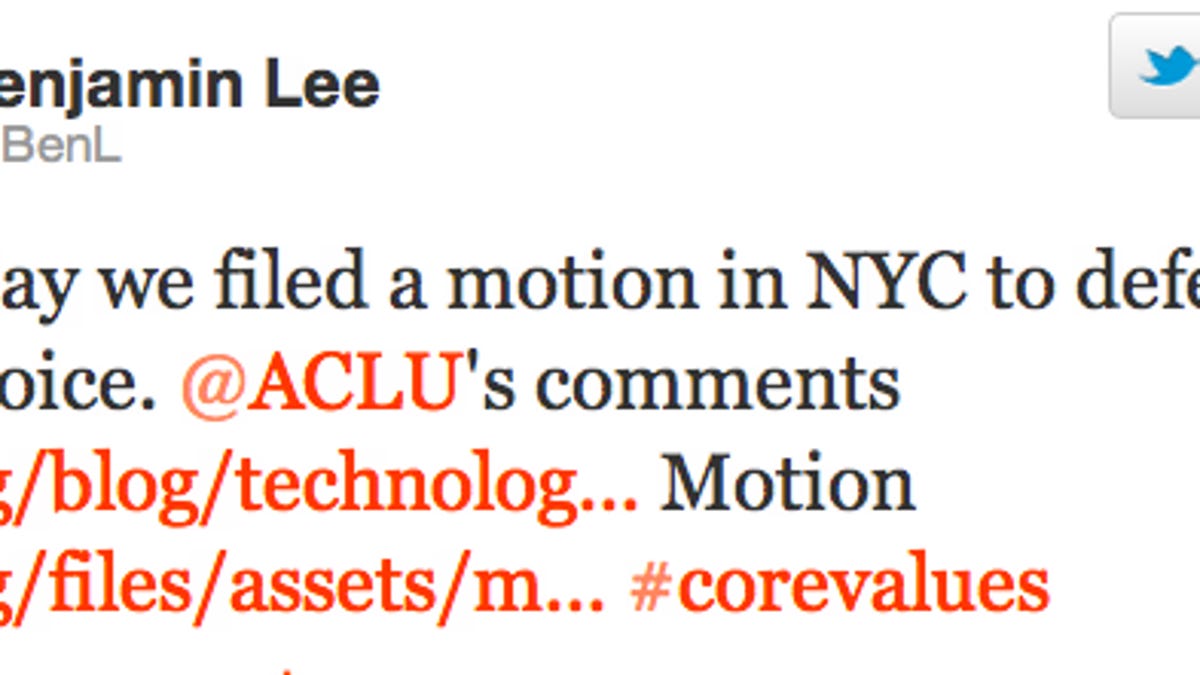Twitter challenges court order to hand over user data
Twitter tells the court that its users own the data they post to the site.

Twitter is challenging an order from a New York state court requiring it to hand over data on one of its users, who is being prosecuted for disorderly conduct related to an Occupy Wall Street protest on the Brooklyn Bridge last year.
Prosecutors want Twitter to turn over basic user information from Malcolm Harris' Twitter account (@destructuremal), as well as his tweets. Harris' motion to quash the subpoena to Twitter was denied by the Criminal Court of the City of New York, and Twitter filed a motion (PDF) yesterday in support of the defendant's motion to quash the subpoena.
In denying the motion to quash the subpoena, the court held that Harris has no proprietary interest in the content he submits to Twitter, but Twitter argues the opposite. Twitter's terms of service state that its users "retain (their) rights to any content (they) submit, post, or display on or through" the site. In addition, the Stored Communications Act permits users to challenge demands for their account records, Twitter says.
"As we said in our brief, "Twitter's terms of service make absolutely clear that its users *own* their content," said Ben Lee, Twitter legal counsel. "Our filing with the court reaffirms our steadfast commitment to defending those rights for our users."The American Civil Liberties Union applauded Twitter's action.
"This is a big deal. Law enforcement agencies -- both the federal government and state and city entities -- are becoming increasingly aggressive in their attempts to obtain information about what people are doing on the Internet. And while the individual Internet users can try to defend their rights in the rare circumstances in which they find out about the requests before their information is turned over, that may not be enough," Aden Fine, senior staff attorney at the ACLU, wrote in a blog post today. "If Internet users cannot protect their own constitutional rights, the only hope is that Internet companies do so."

